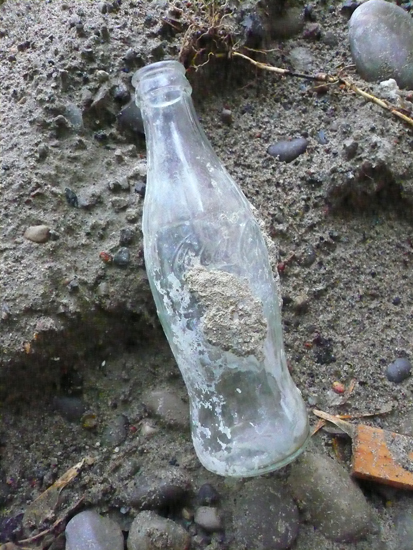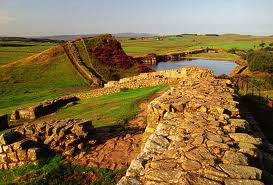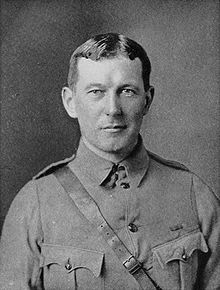
It surfaced a few months ago. We found it along an old, stone foundation during some renovations at our house (built in the 1920s). And while this piece of history wasn’t nearly as old as the house, it dated back nearly that far. It was an empty Coca-Cola bottle. You know, those short, stubby ones, sometimes made of blue-green glass, but more often clear – the ones that were a perfect fit in your hand. Our artefact came from an era when the Coke slogan (c. 1938) was: “The best friend thirst ever had.”
Like the slogans, this bottle was a unique survivor of an era when Coke featured its first radio ads, expanded production into more than 40 countries and when its corporate execs decided they better keep Coke’s original formula secret. When I spotted the bottle in the dirt, I couldn’t believe it had survived. But that’s not the oddest thing I’ve ever seen survive the wear of earth, water and time.

During a trip overseas some years ago, my wife and I visited Hadrian’s Wall, in northern England. There along the 120-kilometre-long stone barricade designed to keep the Celts out of Roman-occupied Britain, we visited an unearthed Roman fort. Of course, it had the usual surviving stone tablets, iron spears and breastplates. But what surprised us was the existence of cloth garments, a pair of sandals and even a parchment birthday greeting. All had survived more than 2,000 years in the ground.
Even more amazing to me, however, are the stories of human survival. About a week ago, in a feature I wrote for the National Post, I recounted three human tales of survival from the greatest nautical disaster of all – the sinking of RMS Titanic on April 14, 1912. Late that night, a hundred years ago, an 18-year-old purser, named Steve Prentice, was clinging to the stern of an almost vertical Titanic, just before the ship sank.
“There were a thousand people aboard, just waiting for death,” he told me in 1978. He let go of the stern and dropped passed the propeller blades. “I hit the water with a terrific crack. I was all alone … I felt myself freezing up. Then, a passing lifeboat picked me up and saved me.”
As amazing as it seems, two years later (1914), purser Prentice was aboard RMS Oceanic, another Atlantic liner, on a trip from New York to Europe. With war just declared, the ship was commandeered by German officers, turned into a gunboat and sunk off the Shetland Islands. He survived that sinking too as well as service in the army in both World Wars!
Of course, they say the most remarkable survivors are politicians. They said it of President Franklin D. Roosevelt. They said it of “The Iron Lady,” Britain’s Prime Minister Margaret Thatcher. They said it of the man who brought charisma to Canadian politics, Prime Minister Pierre Elliott Trudeau, until that night of his fabled “walk in the snow.”
“I walked until midnight in the storm,” Trudeau said on Feb. 29, 1984. “Then I went home and took a sauna for an hour and a half. It was all clear. I listened to my heart and saw if there were any signs of my destiny in the sky, and there were none — there were just snowflakes.” He retired shortly after.
Canadian literature has given us iconic survivors. Lucy Maud Montgomery gave us Anne (of Green Gables) Shirley. Margaret Laurence created Hagar Shipley in “Stone Angel,” while W.O. Mitchell created “Jake and the kid.” And while you won’t immediately recognize Sam Slick, the character created by Maritime author Thomas Chandler Haliburton, you’ll recognize the clichés he invented: “The early bird gets the worm,” was a Sam Slick-ism. So was “A stitch in time saves nine.”

I’ve just returned from a tour of the battlefields of France and Belgium, where there are no more enduring words than those of a Canadian medic in the Great War.
“In Flanders Fields the poppies blow, between the crosses row on row,” John McCrae wrote in May 1915.
Most don’t realize that McCrae composed those lines as he presided over the funeral of fellow soldier Alexis Helmer, who died at the second battle of Ypres. Also not widely known is that McCrae apparently created the poem in 20 minutes, then discarded the first draft, only to have it saved by some of his comrades in the medical corps. It was published on Dec. 8 that year. And while his famous poem survived the Great War, McCrae did not. He died in January 1918, after contracting pneumonia and then cerebral meningitis.
“If ye break faith with us who die,” he wrote in the final lines, “we shall not sleep, though poppies grow in Flanders Fields.”
Remarkable how such things as cola bottles, political careers and poems survive when so much that seems more permanent, does not.